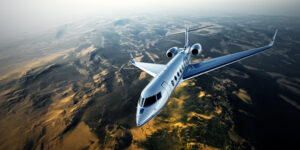 To register an aircraft (or maintain registration of an aircraft already registered) in the United States (i.e., N-registration), the aircraft must be either (1) owned by a “citizen of the United States,” (2) owned by an individual citizen of a foreign country who has been lawfully admitted for permanent residence in the United States, (3) owned by a corporation that is not a “citizens of the United States” provided that it is organized and doing business under the laws of the United States and provided the aircraft is based and primarily used in the United States (i.e. 60 percent of the flight segments must be point to point inside the U.S.), or (4) owned by a federal, state or local government in the United States.
To register an aircraft (or maintain registration of an aircraft already registered) in the United States (i.e., N-registration), the aircraft must be either (1) owned by a “citizen of the United States,” (2) owned by an individual citizen of a foreign country who has been lawfully admitted for permanent residence in the United States, (3) owned by a corporation that is not a “citizens of the United States” provided that it is organized and doing business under the laws of the United States and provided the aircraft is based and primarily used in the United States (i.e. 60 percent of the flight segments must be point to point inside the U.S.), or (4) owned by a federal, state or local government in the United States.
An entity such as a corporation or limited liability company is a “citizen of the United States” so long as it is organized in the United States, at least 75% of the voting interest of the entity is controlled by “citizens of the United States,” the president or principal executive officer of the entity is an individual U.S. citizen, at least two-thirds of the officers, directors and managers are individual U.S. citizens, and the entity is “under the actual control of “citizens of the United States.”
A partnership (general or limited) also qualifies as a citizen provided that all of its partners are individual citizens of the United States. However, many limited partnerships used in business (think private equity and venture capital firms) have entity, as opposed to individual, partners. Ownership structures with these types of limited partnerships may cause the aircraft registrant not to be a “citizen of the United States.”
While a permanent resident qualifies to register an aircraft on the United States registry, an LLC that is wholly owned by that permanent resident fails to qualify for United States registration, as it fails to meet the corporate citizenship test.
Most aircraft owners figure out how to qualify for U.S. registration when they purchase an aircraft. However, corporate structure changes such as mergers or acquisitions, replacement of officers or directors with non-citizens or U.S. permanent residents, the addition of a limited or general partnership to the ownership structure with entity partners, or an officer changing his or her citizenship away from the United States can result in the aircraft no long being eligible for U.S. registration because the registrant is no longer a “citizen of the United States.”
If your aircraft-owning entity does not qualify as a citizen of the United States, or is a U.S. corporation that does not qualify for the based-and-primarily-used exception, you can engage another party to act as owner trustee of the aircraft, or as a voting trustee of the ownership interests in the entity that owns the aircraft. TVPX, Bank of Utah and Wilmington Trust are three leading firms that arrange non-citizen trusts.
Another rule to watch out for: The U.S. Department of Transportation restricts the ability of persons who are not “citizens of the United States” from operating any aircraft with passengers or property on board for compensation or hire, when the flight is to, from or inside the United States. So even if the owner meets the requirements for U.S.-registration, if your aircraft is operated by a non-citizen (such as under a dry lease), the operator may not accept any reimbursement for flights to, from or within the United States. There is an exception to this rule for some corporate-aircraft operations under Part 375.37 of DOT regulations, but you should consult a competent aviation attorney if you intend to rely on this exception.
If there are partnerships or non-U.S. persons in your ownership or operating structure, including officers, members, managers and directors, you should consult an aviation attorney about whether you comply with the FAA registration and DOT foreign aircraft rules.
The information in this article is intended to highlight potential issues with aircraft ownership and operations and is therefore general in nature. Please feel free to contact one of our experienced aviation attorneys directly to discuss your specific business/personal needs.

